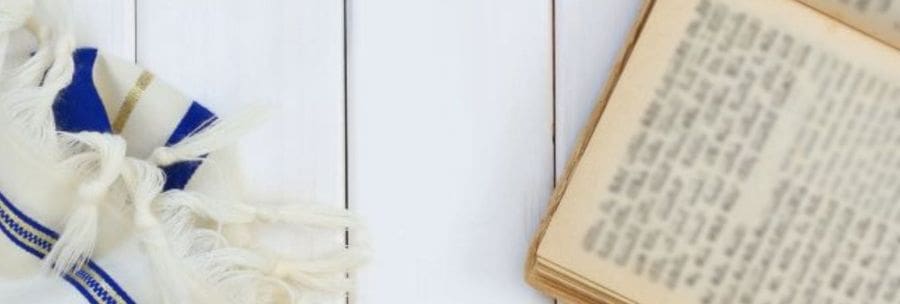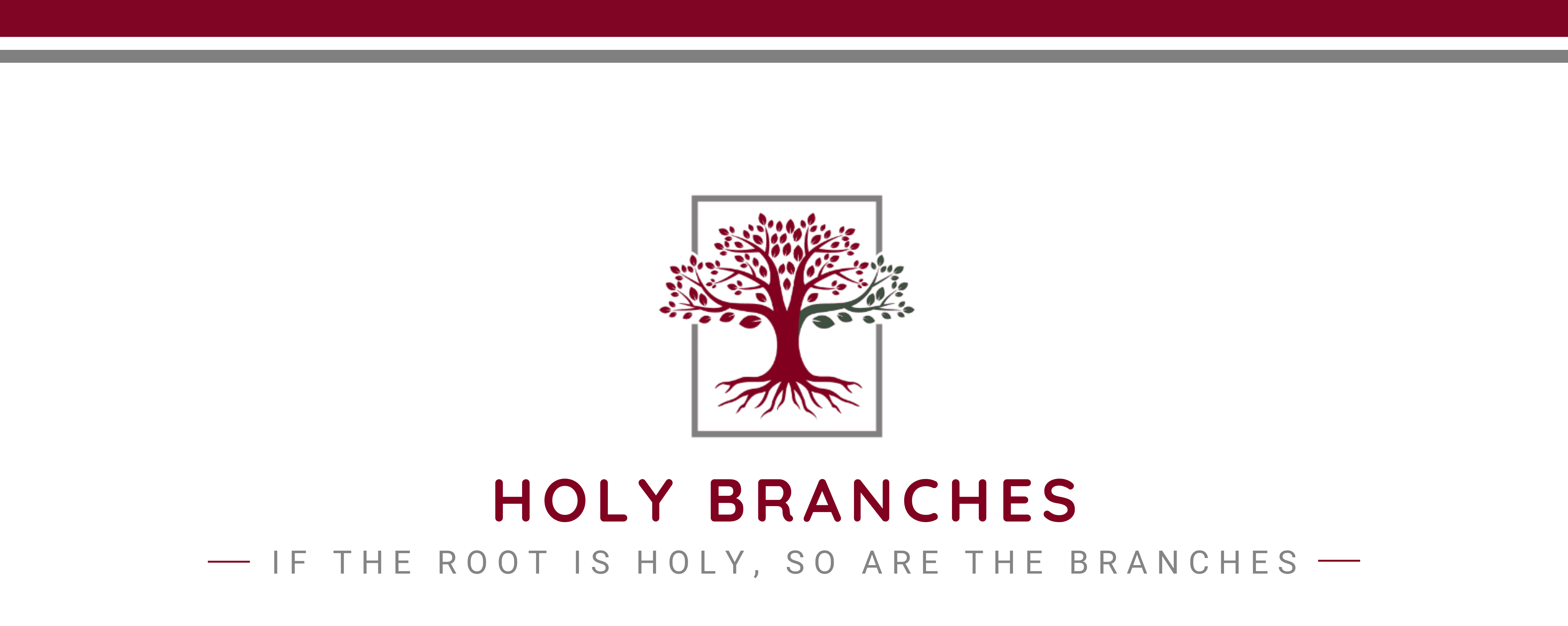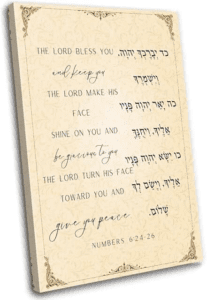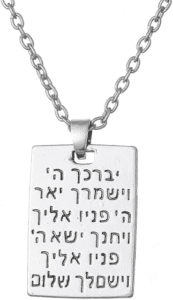
The Aaronic Blessing: An Introduction

The Aaronic Blessing, also known as the Priestly Blessing, is commonly known among Christians, and it’s said after the service in Christian churches of many denominations and Jewish synagogues. Aside from being a nice thing to say before congregants exit the sanctuary, why is it said, and where does it come from?
Click here for a printable version of the Aaronic Blessing.
A command to bless
This blessing was God’s idea as He instructed Moses to tell Aaron and his sons to bless the people of Israel using these words. In the book of Numbers, where this blessing is found, the Israelites are experiencing their newfound freedom from their Egyptian captors. In the Sinai wilderness, God’s giving them instructions for their new desert lifestyle as free people. God also provides directives for the priesthood, including a specific command to bless the people using what is commonly referred to as the Aaronic blessing.
Then the Lord spoke to Moses, saying, “Speak to Aaron and to his sons, saying, ‘Thus you shall bless the sons of Israel. You shall say to them:
The Lord bless you, and keep you;
The Lord make His face shine on you,
And be gracious to you;
The Lord lift up His countenance on you,
And give you peace.’
So they shall invoke My name on the sons of Israel, and I then will bless them.”
Num. 6:22-27
One exciting thing you’ll notice as you learn about the blessings is that there’s a progression in the bible of who was allowed to give a blessing. At first, only God had the authority to bless, and he then extended it to some of the patriarchs and then to priests. Some incidences of Aaron blessing the people in God’s name are found in Leviticus and Deuteronomy (Lev. 9:22 and Deut. 10:8 and 21:5).
Throughout history
In an archeological site on the old road from Jerusalem to Bethlehem, what are possibly the oldest surviving Hebrew texts were found in 1979. In ancient Paleo-Hebrew, the Aaronic Blessing was written on two scrolls made of silver found in an ancient burial site. Aptly named “The Silver Scrolls,” they were dated back to the First Temple period and were possibly used as an amulet to ward off evil. If true, this would be another of many unfortunate examples of pagan customs infiltrating God’s people even back then. But what a fantastic find!
The Aaronic Blessing today
Today, God’s people are blessed using this same blessing in synagogues worldwide. In Judaism, it used to be that only priests would give this blessing, but it’s now extended to rabbis and worship leaders.
In a synagogue, when the congregants are blessed, the one performing the blessing raises his hands as Aaron did, as recorded in the Bible (Lev. 9:22). This practice has been nicknamed “the raising of the hands.” He also extends his prayer shawl or tallit over his head and his hands as he recites the blessing to indicate reverence and to obey the biblical command to have fringes or tzitzit on the corners of one’s clothing. Some hold their hands in the shape of a shin (ש), the Hebrew letter at the beginning of the word Shaddai, a name for God. The blessing is most commonly recited in Hebrew, but other languages are used depending on the audience.
On the evening of the Sabbath, Friday evening, this blessing is often said over the children of the house by many Jews and some Christians. It’s accompanied by requests for God to make them like Ephraim and Manasseh (boys) or Sarah, Rebekah, Rachel, and Leah (girls). Whether in English or Hebrew, the one blessing usually puts their hands on or above the one(s) being blessed and then says the blessing.

For Christians?
As grafted-in Gentiles, we can take part in the promises extended to Israel and gain nourishment from the same roots from which they thrive – God Himself! When we accepted Jesus as our savior, we officially joined the Kingdom of God, which started with the nation of Israel in the Old Testament.
Under the New Covenant, where God’s Word has been written on our hearts through the Holy Spirit as believers in Jesus, we entered the priesthood ourselves. Revelation 1:5-6 says that Jesus’s blood made us priests to God! We can bless God’s people in His name, and He does indeed bless through it due to the power in His name.
A walk through the blessing
The LORD bless you and keep you
(Yverkah’kha Adonai v’yeeshm’rekha; – יְבָרֶכְךָ יְיָ וְיִשְׁמְרֶךָ׃)
Adonai is written and said in this phrase instead of the tetragrammaton, YHVH, which is not said to avoid profaning God’s name.
The word “bless” here means “to affirm or revere,” and the word “keep” means “to protect or watch.”
The LORD make His face to shine upon you
(Ya’ayr Adonai panav ‘aylekha – יָאֵר יְיָ פָּנָין אֵלֶיךָ)
“Face” here is a noun and can be either “face,” literally, or “front” as well.
And be gracious unto you
(Veekhoonekha; – וׅיחֻנֶּךָ׃)
Translated here as “gracious,” this word means “to show pity or favor.”
The LORD lift up His countenance upon you
(Yeesa’ Adonai panav ‘aylekha – יׅשָּׂא יְיָ פָּנָיו אֵלֶיךָ)
This phrase is an idiom (a saying) meaning “He looks at you with peace and blessing.”
And give you peace.
(V’yasaym l’kha shalom. – וְיָשֵׂם לְךָ שָׁלוֺם)
Beyond just peace, shalom’s meaning also includes wholeness and completeness. And who of us doesn’t want God’s perfect peace?
In your family
If this article has moved you to use the Aaronic Blessing to bless your children, please don’t let the learning process or the newness of doing so prevent you! I encourage you to continue this blessing once you start, as it may be awkward at first but will become among your family’s most treasured moments, as it has become in mine.

A blessing for you!
And I’ll conclude this way with all of you, brothers and sisters, in my mind and heart:
The LORD bless you and keep you
The LORD make His face to shine on you and be gracious unto you
The LORD lift up His countenance upon you
And give you peace.
Comments (6)
Leave a Reply Cancel reply
Search
Recent Comments
- Denise Kerhlikar on Explaining The Chosen: Season 3, Episode 3: Physician Heal Yourself
- DSS on Wild Olive Branches: The Blessing of Being Grafted In
- Nicolai Marvin on An Introduction to the Hebrew Vowels
- Kathy on How to Find a Hebraic Congregation
- Amy on Explaining The Chosen: Season 1, Episode 3: Jesus Loves the Little Children






I had always wondered about YHWH.. If you look at the Hebrew of today, you will not find the W sound ie Wah, but you find the Va sound in the Hebrew letter Vav. But, if you look at Paleo Hebrew, you will find the Wah, and not the Vav. Daveeds name would actually be Daweed. I believe YAHWEH means YAHIS. I say this because when Moshe asked G-d His Name, He said “Eyeh Asher Eyeh” .. I AM THAT I AM. WEH could be from the rot Eyeh meaning “is”. YAHIS. The scripture says that you must believe that He IS and is a re warder of those who diligently seek Him…. Most Bibles translate or have the tetragrammaton With the V. This is how the term Yehovah has come about. However, if it is the W, then it would be YAHWEH. Period. This is what my research has given. Shalom alechem
Wonderful Ruach Ha’Kodesh filled article. Are you ready for the Harpazo, the Rapture of the body of Christ? Where the bridegroom is coming for his bride, for born again believers in our LORD Yeshua Hamashiach are NOT appointed to Wrath. This is going to happen soon. You are not reading this by chance of course.Maranatha!
loved this which explains the progression of the blessing to haw it ties in with calling on the name though water baptism in the name of the lord Jesus christ! Powerful- https://www.youtube.com/watch?v=fIEGdYsEkI8
Thank you for your interesting web site, Ellen. If I may, let me emphatically say that, of course you SAY YHWH’s name!!! There is no command not to say His Name. We don’t profane His Name by saying it, but by not understanding Covenant, and that YHWH is His covenant name.
The Jews didn’t say the name of YHWH because of fear, stupidity, and tradition. But in speaking YHWH’s name we tap into great Blood Covenant authority and power.
Jesus, Who is YHWH personified, was constantly referring to the use of His Name (John 17) in prayer, knowing His Love, casting out demons, healing sick people, receiving His protection and provision, and believing for joyful and fruitful results in our relationship with Him.
But most Christians tack it on to the end of a prayer as a meaningless rite and superstition. That profanes His Name.
And most Christians don’t culturally understand what a Covenant is, or what all His Covenant Names are. That’s the most critical aspect of Jewish tradition you need to understand, and it dwarfs in importance all the various traditions and feasts you mention in your website.
How can one anoint people with His Name but not say His Name?
Ellen, that’s a great question! I’ll have to look into that and I’ll get back to you when I find the answer.